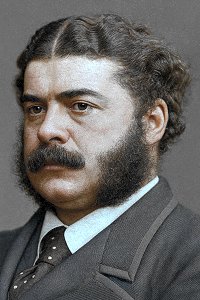Introduction

Words: Attributed to John of Damascus, 8th Century (Δόξα ἐν ὑψίστοις Θεῷ). Translated from Greek to English by William C. Dix in Lyra Messianica, edited by Orby Shipley (London: Longman, Green, Longman, Roberts & Green, 1864), page 111.
Music: Constance (Sullivan) Arthur S. Sullivan, 1875 (🔊 pdf nwc).
